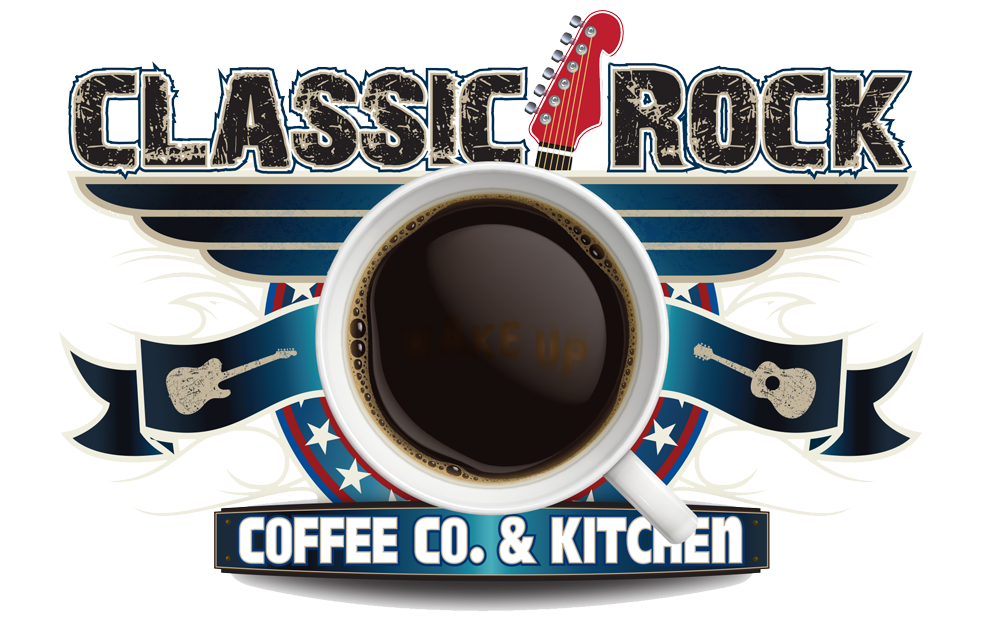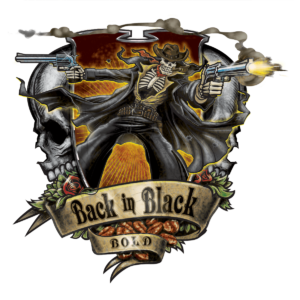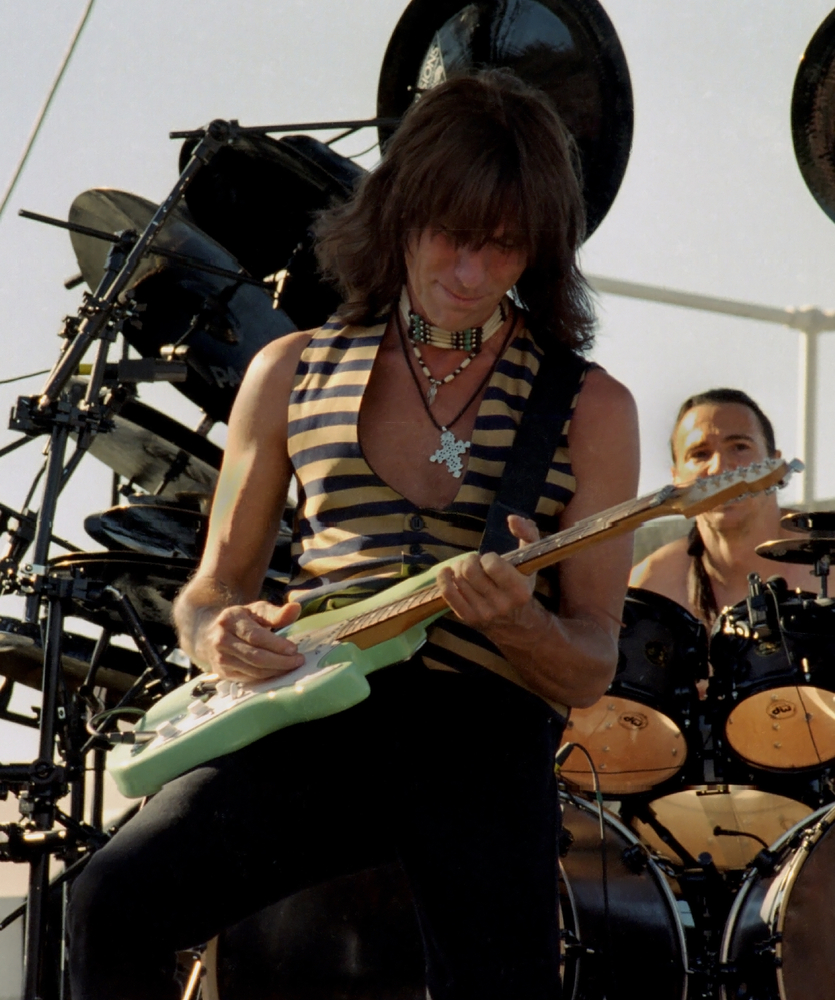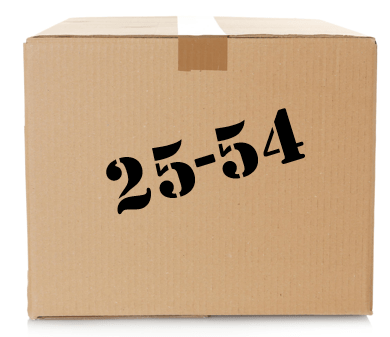
It seems like no more than a couple weeks go by and we’re looking at some sort of natural disaster in the world, and right here at home in America. Hurricanes, tornadoes, wildfires, floods, droughts – they somehow just keep on coming, seemingly at a greater rate than ever before. But tsunamis? They’re rare, often accompanying earthquakes.
So, today’s blog post refers to a very distinct tsunami – a silver one – referring to the millions of consumers here in the U.S. of AARP age – those collecting Social Security and paying attention to all those TV ads for pharmaceutical companies and Medicare ads. We’ve talked about the so-called “Silver Tsunami” before, better known as Baby Boomers.
Yes, there’s a similar number of Millennials, and of course, Gen Z is already a force to be reckoned with. But Boomers still number in the neighborhood of 75 million strong. And many are in a position to spend money and have fun.
Classic Rock is their music. And in modern times, it’s a rarity for a generation to have its own soundtrack. But if you grew up in the late 60’s and 70’s, that was one of the true perks of being a teen during those frenetic, historic years.
Of course, we know that younger generations have adopted the music, the artists, the concerts, and even the clothing styles. They’re a big reason why Classic Rock is so ubiquitous on the commercial radio airwaves today.
But this post isn’t about them. It’s about that the people who literally grew up with the music – and still love, cherish and celebrate it today.
It’s on display every Friday night at a club called Live in a town more famous for its college than its Classic Rock. It was covered in a New York Times feature story the other day:
“It’s the Coolest Rock Show in Ann Arbor. And Almost Everyone There Is Over 65.”
A group of die-hard music fans gather on Fridays to dance to some of the most devoted live bands in southeast Michigan. The party’s official name is “Ann Arbor Hour Happy Hour at Live,” but many people call it “Geezer Happy Hour.” https://t.co/YwqLbWlNKQ pic.twitter.com/QOL4bmZ1Fo
— The New York Times (@nytimes) January 12, 2023
At a bar in Ann Arbor Michigan, “Geezer Happy Hour” – or just “Geezers” for short – has been going on for years. The story is worth accessing for the photos alone, all taken by Nic Antaya.
The story is celebratory, inspiring, funny, and a reminder of how this generation and its music is so cultural and tribal. These regulars even kept it together during COVID, including meeting – and dancing – on Zoom.
This spry group (“spry” is the go-to word for old people who can still get around a dance floor) gather in a Facebook group that’s 2,700 strong. As its organizer Randy Tessier, 72 year-old University of Michigan instructor, explains:
“I call us the ‘Silver Tsunami.’ There’s a lot of us and we still want to rock.”
And drink coffee.
In another part of the country, there’s this new joint opening in San Antonio, Texas – the Classic Rock Coffee Company & Kitchen. Its slogan: “Our coffee rocks.” The place is festooned with themed posters, guitars, and the other memorabilia so symbolic of the music.
Rock Coffee Company & Kitchen. Its slogan: “Our coffee rocks.” The place is festooned with themed posters, guitars, and the other memorabilia so symbolic of the music.
And the flavors of coffee offered promise energy, rather than the quiet vibe so many coffee shops offer. They include names like “Barracuda,” “Cold Shot,” “Atomic Punk,” and even “Living After Midnight.”
But this new San Antonio store isn’t the first. These stores are now franchised in eight countries, including Iraq. CRCC had its debut in Springfield, Missouri dating way back to 2011. Founder Kent Morrison is the guy responsible for putting this Classic Rock-themed franchise on the map.
 He explains CRCC has “a focus on serving great coffees in a non-typical coffee environment.”
He explains CRCC has “a focus on serving great coffees in a non-typical coffee environment.”
I’ll have the “Back in Black,” of course.
And then there was the passing of Classic Rock guitar virtuoso, Jeff Beck, last week after contracting bacterial meningitis. Beck was a scrappy 78 years-old when he passed, so influential on the genre and his fellow musicians, writers, and performers.
No Classic Rock station went “wall-to-wall” Jeff Beck or “Jeff Beck A-to-Z” when the news broke. Perhaps a handful played “Freeway Jam” and called it good. Others perhaps spun a Yardbirds tune, Beck’s seminal 60’s band that produced a string of British Invasion-era hits. He was right there with Eric Clapton and Jimmy Page in rock n’ roll’s forefront.
As writer Peter Hodgson put it so well in Mixdown:
“Jeff Beck has the most rare of gifts as a musician: he never played the same thing twice, and yet no matter what he played, he did it with a mastery and intention that made it sound like he had done it that way all his life.”
The first two stories in this post are banging the same drum JacoBLOG readers can probably recite chapter and verse by now: why the rest of the world has cashed in on Classic Rock targeting millions of vital consumers whose only blemish is that they’re over 55, while broadcast radio has sat on the sidelines, providing the soundtrack, but not making the money.
 The Ann Arbor bar night and the coffee company stories underscore the billions of entertainment dollars that elude radio’s coffers because of the industry’s inability to get out of its “25-to-54 box.”
The Ann Arbor bar night and the coffee company stories underscore the billions of entertainment dollars that elude radio’s coffers because of the industry’s inability to get out of its “25-to-54 box.”
And the passing of Jeff Beck is a reminder of the music’s eternal worth and relevance. Beck’s influence on so many musicians and fans that were born during rock’s true golden age is testimony to its never-ending appeal.
- The Hazards Of Duke - April 11, 2025
- Simply Unpredictable - April 10, 2025
- Flush ‘Em Or Fix ‘Em?What Should Radio Do About Its Aging Brands? - April 9, 2025




Thank you, Fred! Great Music. Great generation. Great Buying Power.
Thanks for chiming in on this one, Clark.
Yes to all of the above. Your comment. “played Freeway Jam” and called it good”, is so accurate. I tuned around the virtual dial a bit after his passing, to AAA, and alt radio stations. That’s exactly what happened. And even worse than calling-it-good is that the vocal frying DJs actually thought Freeway Jam was “IT”. They’d give the lip service to British Invasion, and Jeff Beck Group, and play F.J. , period. Ha. It would be like saying John Coltrane was a Jazz musician, and he covered My Favorite Things…isn’t that cute; and called it good!
As to the gold-in-the-gray; what are your thoughts on marketing to 65-74 demo? I’m assuming it’s still pretty much being ignored except for the incessant Medicare Part C, and big Pharma ads on daytime TV. But maybe I’m wrong. An awful lot of folks getting around the dance floor, and the ski resorts, and electronics stores/websites are 65+ these days with cash burning holes in their pockets. Will the green eyeshade media planners follow that money? The excuse 20 years ago was “but they’re brand loyal, and no one will get them to change brands.” Not so much. A friend in that demo who’d been loyal to LG TVs for years just switched to Samsung. Why? “I saw an ad for those new Frame TVs, and had to have one.”
Thoughtful as always, Tim. The death of rock stars provides pivotal moments for stations. It’s even more challenging when its someone like Beck, in many ways a character actor rather than the star of the show. Great talent (given the chance) can frame his contributions and put them in context. (See Paul Ingles’ comments and responses.)
Regarding the discussion of “money demos,” I keep watching CNN where it seems at least 75% of ads are geared to the AARP set. And I can’t help but wonder why radio cannot similarly cash in. As you suggest, there are lots of excuses why radio cringes whenever this topic comes up – all the way to bankruptcy.
How many people under age 35 know who Jeff Beck is? By adding more Green Day into corporate classic rock playlists and taking the Yardbirds out, mainstream radio is allowing younger generation to not learn about these guitar greats. Consultants and executives should cease in this style of programming and assume that all people listen to all forms of music.
Mike, it’s complicated. Discussions of demographics have long been part of the Classic Rock conversation in the conference rooms of radio stations all over the U.S. Do younger demos come from Nirvana or the Doors? What happens when a format loses its center, its north star. Thanks for the inspiration – time to listen to “For Your Love.”
Fred, Fred, Fred… For Your Love does not have jeff Beck on it. It was Clapton, who was replaced by Beck. As far as paying tribute? My station played two Beck songs during our Old School Lunch feature the day after his death. We played Heart Full of Soul and Ain’t Superstitious. Classic Rock stations could’ve also played People Get Ready. You’re not giving the listeners enough credit for knowing who he is, and you’re giving programmers TOO MUCH credit for knowing who he is… My station (KMKF in Manhattan, KS) is the Classic Rock that defines Gen X and pulls a healthy swath of Millenials in… Consistently #1 25-54 Adults and knocks 18-34 Men out of the park with a 27 share. The Classic Rock the Corporates are force-feeding the public are what Big Band/Music Of Your Life format stations were 20 years ago. Stop being safe, start understanding your new audience.
Peter, Peter, Peter.
First off, congrats on those ratings. They are impressive. I’ve learned – sometimes the hard way – there is a multitude of ways to do this format, much of it situational, but also dependent on who you have to work with, is there a PD on-site, etc. No excuses. You have to play the cards you’re dealt.
I have learned the degree of difficulty of programming a wider list of music is high, especially for programmers who were taught “tight & bright” music scheduling. Then there are the intangibles – the air staff, the storytelling, the promotions, the attitude – all important variables in station success. Most no longer have these assets (or they’ve frittered them away).
Finally, good catch on “For Your Love.” The ironic thing was that my first instinct was to use “Over Under Sideways Down” as my Yardbirds song, but ended up second-guessing myself by thinking too few readers would be familiar with it. Somehow, that probably makes your case.
I appreciate you writing in.
At the risk of seeming (again) a little self promotional, let me mention that while Classic Rock commercial stations wouldn’t likely have felt safe doing a long deep dive into Jeff Beck (although as you say,, they could have played 3 or 4 pretty familiar Yardbirds tunes he wailed on), public radio is providing the context …explaining why the national news and social media was covering Beck’s loss as major. Here’s the hour we offered within 36 hours of his death being announced. The important Beck tracks with comments from 3 musician experts. 15 stations (probably Triple A’s) jumped on it quickly and more are expected to pick it up in the couple of weeks ahead. Sure, a tiny sliver of the broadcast universe…but enough to help me cobble together a modest living by offering up timely primers of greats like Beck, detailing why people did care for them. For your reader’s enjoyment, if so inclined, here’s a link to the first of 2 hours on Beck that we released. (Only 2 bold stations have carried both hours so far). Thanks Fred for making Jeff’s passing a piece of your piece. He was something else. In many ways, steps beyond Clapton and Page…more like Hendrix 2 or 3 years before anyone heard of Jimi.
https://exchange.prx.org/pieces/457191
Mille grazie, signore! The first hour did play on my local community radio station, WERU-Blue Hill (Maine), and I’ll get the second hour through your kind link. I know my friend Dore Stein also whipped together an impromptu, informative show last Saturday night at KALW-San Francisco.
Lest Fred be unaware, though, I’m happy to report that Tommy C., a DJ at one commercial AAA station in my area, WCLZ-Yarmouth, who does a weekly free-form Saturday 4-hour block, pivoted quickly and changed half of his already publicized show to include a very comprehensive Beck focus and tribute with substantial ancillary discussion for context. He has already explained, subsequently, that his next show will do the segment he omitted because of Beck’s untimely passing. Hats off to Portland Radio Group for letting this happen!
For ease of finding… here’s the link to HOUR 2 on Beck.
https://exchange.prx.org/pieces/457495-jeff-beck-essential-artist-optional-hour-2
Since I wrote this morning, 3 more stations picked up HOUR 1 and one of them went for both hours. Those listeners are getting a treat, and I’m betting most hitting on it by accident won’t be turning away because of the attempt at matching context commentary along with the playing. A docent led museum tour is always more gratifying than just wandering through on your own. And although these songs might be called “museum artifacts”, any musician will tell you that even the oldest examples of Jeff Beck’s work sound ground-breaking to this day.
….thanks John. Do me the favor of somehow letting WERU know that you appreciated them airing the show. They also carry my PEACE TALKS RADIO series. In my view, they are exemplary community radio…
Done!
Thank you for this. Thank you for caring about the music and the people who made it important to the world.
Paul, appreciate the kind words. And I’m glad our “comments” section can accommodate your great work now and again. The passing of a Jeff Beck is an opportunity for a great radio station to acknowledge a true maestro. You provide great support. ‘Til next time.
I don’t think I knew this before, but Jeff Beck played an important role in the creation of Stevie Wonder’s Superstition–although he apparently didn’t play on that version (instead doing one for the Beck, Bogert & Appice album that might’ve been originally planned to be released first).
Indeed. There’s a whole story about these two artists and their collaborations. Beck was a lot of different guitarists rolled into one, including Jazz Fusion. Lots of mutual respect between him and Stevie.
Classic Rock is some of the best music ever made – its already proven that it can span generations like no other music. Classic Rock’s core audience, conversely, is among the least attractive to advertisers.
Radio already has an image and relevance problem with advertisers and agencies. They think that its diminishing use and aging audience are worse than they actually are and trying to convince them to shift their target to boomers will only reinforce that thinking.
Classic Rock is awesome music, but sadly, at some point its core audience may be too old to support it as a radio format. Two lines come to mind:
1) “Fish where the fish are”. Agencies aren’t generally fishing for old white men.
2) “You have to put a signal over them – they’re not going to drive where you are”. 25-54 is where the agencies were when I was 25 and it still is.
Trying to sell something people don’t want is much less likely to work than providing something they do – that applies equally to radio’s advertising targets and audience. Its unclear whether 30-somethings would listen to something targeted to them if it was on the radio, but if that ship hasn’t sailed yet, it will before too long. It’s time to find out.
Glad to see you’ve still got that fastball, Bob. You were there in the opening innings of this formattic journey, still finding a way to endure.
A while this debate goes on and on—
I can still hear the business owner who honestly said:
“If it wasn’t for our customers in their fifties and sixties, we would be out of business.”
Smart man or woman.
Fred, there are also very few people programming now who actually know the music, let alone Jeff Beck or the fact he played with the Yardbirds or Jimmy Page. When the (mostly) guys who make the decisions are calling it “old guy rock”, you have a problem.
Before we talk sales monetization, let’s talk about programming understanding their own audience, the music and why it matters to them. Many are either gone from the business or attempting to young-up the format for managers wishing for more 25-44s.
I feel there is a two-headed reason for radio’s absence from the silver tsunami.
And none of these strategies is really working, Jack. Thanks for the wisdom on this one.
Hello, Fred. Another excellent article. There is one thing you didn’t cover when talking about older demos. It concerns Psychology. Not the Psychology of older people. I’m talking about the rigid thinking and the severe lack of creative ideas that currently dominate the broadcasting establishment. I call it the anti-oldies crowd. You can also call it the anti-classic rock movement. They just simply don’t want to discuss older demos period. Why? You could call it narrow mindedness. You could also call it “set in their ways” and totally incapable of thinking outside the box. Then there are those who will not accept a “good idea” simply because they did not think of it first. In my quest to get my oldies format idea on the air I have encountered some first class arrogant morons who are incapable of having a civil conversation on the subject. And then there are those who think they are the King Of The Oldies who firmly believe in the limited playlist concept and that if you play a song that wasn’t a top ten hit you’re audience will immediately recognize this and change the station, never to return. Whenever I encounter people like this I mentally flush them down the toilet. My point is you may have to go outside the broadcasting box to find people who will listen to your pitch and recognize the value of your plan. In other words, “Don’t waste your time arguing with an idiot.”
Curt, these are familiar walls, and over the years, I’ve banged my head into most of them. The “limited playlist” concept was already catching on when PPM was developed. I’m not sure it’s been to the benefit of the format, but a lot of broadcasters have made a lot of money by keeping it tight.
Playlist expansion is an art that flies in the face of most music scheduling architectures. It (usually) requires a hands-on programmer, something that is sadly becoming a rare commodity in today’s radio. I wish it wasn’t so. Thanks for taking the time to weigh in on this.